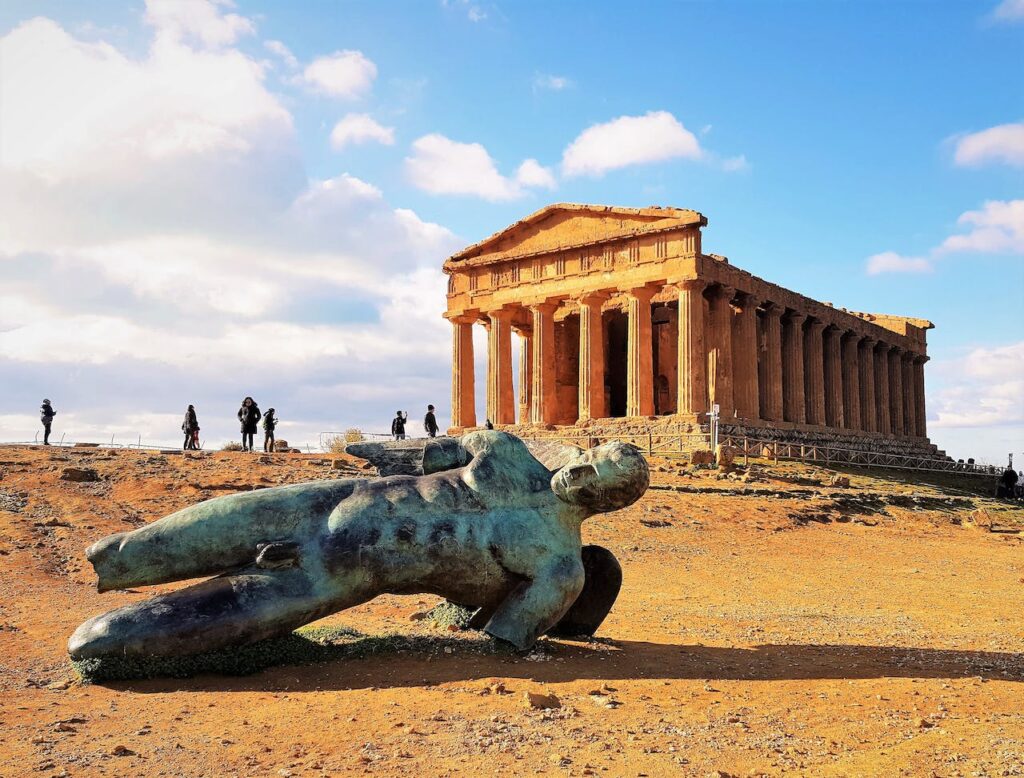The ancient Greek city-states stand as monumental pillars in the history of human civilization, and their contributions to various fields such as philosophy, art, and warfare are widely acknowledged. However, one of the most profound legacies of the Greek city-states is the birth of democracy. In this exploration, we will delve into the origins of Greek city-states, the evolution of their political systems, and the emergence of democracy as a revolutionary concept that forever altered the course of human governance.
Page Contents
The Birth of Greek City-States: Foundations of a Civilization
The historical roots of ancient Greece trace back to the second millennium BCE, where disparate tribes inhabited the region. As these tribes evolved and coalesced, the city-state, or “polis,” emerged as the fundamental political and social unit. Unlike the centralized empires of the East, Greek city-states were small, autonomous entities characterized by a shared language, culture, and religion. Prominent city-states such as Athens, Sparta, and Corinth emerged, each with its distinct identity and form of governance.
Read Also : Ancient Mesopotamia: The Cradle of Civilization
A Tapestry of Diverse Political Systems: Oligarchy, Tyranny, and Monarchy
The Greek city-states did not adopt a uniform political system. Instead, they experimented with various forms of governance, contributing to the rich tapestry of political thought. Oligarchies, where power rested in the hands of a few wealthy individuals, were prevalent in some city-states, while others experienced brief periods of tyranny, characterized by rule under a single leader with unchecked authority.
Monarchies, too, were not uncommon, though they faced challenges from emerging aristocratic classes seeking a share in political decision-making. The dynamic political landscape of ancient Greece laid the groundwork for the eventual emergence of a revolutionary idea – democracy.
Athens and the Democratic Experiment
Among the Greek city-states, Athens stands out as the epicenter of democratic experimentation. In the 6th century BCE, Solon, an Athenian statesman, initiated reforms that laid the foundation for a more inclusive political system. However, the true democratization of Athens is often associated with Cleisthenes, who implemented radical changes in 508 BCE.
Cleisthenes introduced the concept of demes – local administrative units – and created a new system of representation, where citizens had a direct say in decision-making. This marked the birth of Athenian democracy, a system that would become a beacon of political innovation for centuries to come.

The Mechanics of Athenian Democracy: Citizen Participation and Decision-Making
Athenian democracy was not a mirror image of modern democratic systems, but it laid the groundwork for key democratic principles. Only male citizens, excluding women, slaves, and foreigners, had the right to participate. However, within this limited demographic, citizens were actively engaged in the decision-making process.
The Athenian Assembly, or Ekklesia, was the primary institution where citizens gathered to discuss and vote on important matters. Additionally, the selection of public officials, known as magistrates, was often done through lotteries to prevent the concentration of power in the hands of a few elites.
Challenges and Critiques of Athenian Democracy
While Athenian democracy represented a groundbreaking experiment, it was not without its challenges and criticisms. Critics, such as the philosopher Plato, argued that democracy could devolve into mob rule, with uninformed citizens making hasty and irrational decisions. The exclusion of women, slaves, and non-citizens also underscored the limitations of Athenian democracy in achieving true inclusivity.
Moreover, the volatility of Athenian politics was evident in the frequent ostracism of prominent figures, where citizens could vote to banish an individual deemed a threat to the state. These aspects reflect the complexities and nuances of ancient Greek democracy.
Sparta: A Unique Political Landscape
While Athens embraced democracy, Sparta took a radically different path. Sparta, known for its military prowess and disciplined society, operated under a system of dual kingship and a council of elders known as the Gerousia. The Spartan political system prioritized stability and military strength over individual freedoms, creating a stark contrast with the democratic experiment unfolding in Athens.
Legacy and Influence: Greek Democracy Beyond Borders
The legacy of Greek democracy extended far beyond the borders of the city-states. The Roman Republic, influenced by Greek political thought, adopted elements of democracy, setting the stage for the evolution of representative governance in the West. The Renaissance and Enlightenment periods further revisited Greek political philosophy, inspiring the framers of modern democratic constitutions.
The concept of citizenship and civic participation, foundational to Greek democracy, became a cornerstone of modern democratic ideals. The notion that individuals have a right to participate in the decision-making process and that government derives its legitimacy from the consent of the governed found resonance in the shaping of contemporary political systems.
Read Also : Chinese Dynasties: A Tale of Imperial Glory
Conclusion: Greek Democracy as a Timeless Beacon
In the tapestry of human history, the Greek city-states stand as a beacon of innovation, experimentation, and intellectual fervor. The birth of democracy in Athens and the diverse political landscapes of other city-states exemplify the dynamic nature of human governance. The legacy of Greek democracy endures not only in political institutions but also in the foundational principles that guide contemporary notions of citizenship, representation, and civic engagement.
The Greek city-states, with their complex political experiments and philosophical inquiries, have left an indelible mark on the trajectory of human civilization. As we navigate the challenges and possibilities of modern democracy, the lessons gleaned from the birthplace of democracy continue to illuminate our path, urging us to reflect on the timeless question: How can we create a more just and inclusive society?


